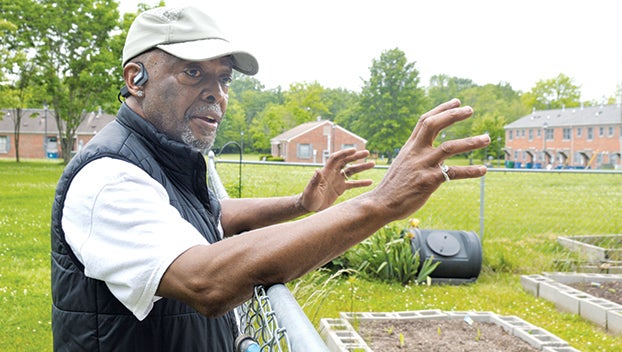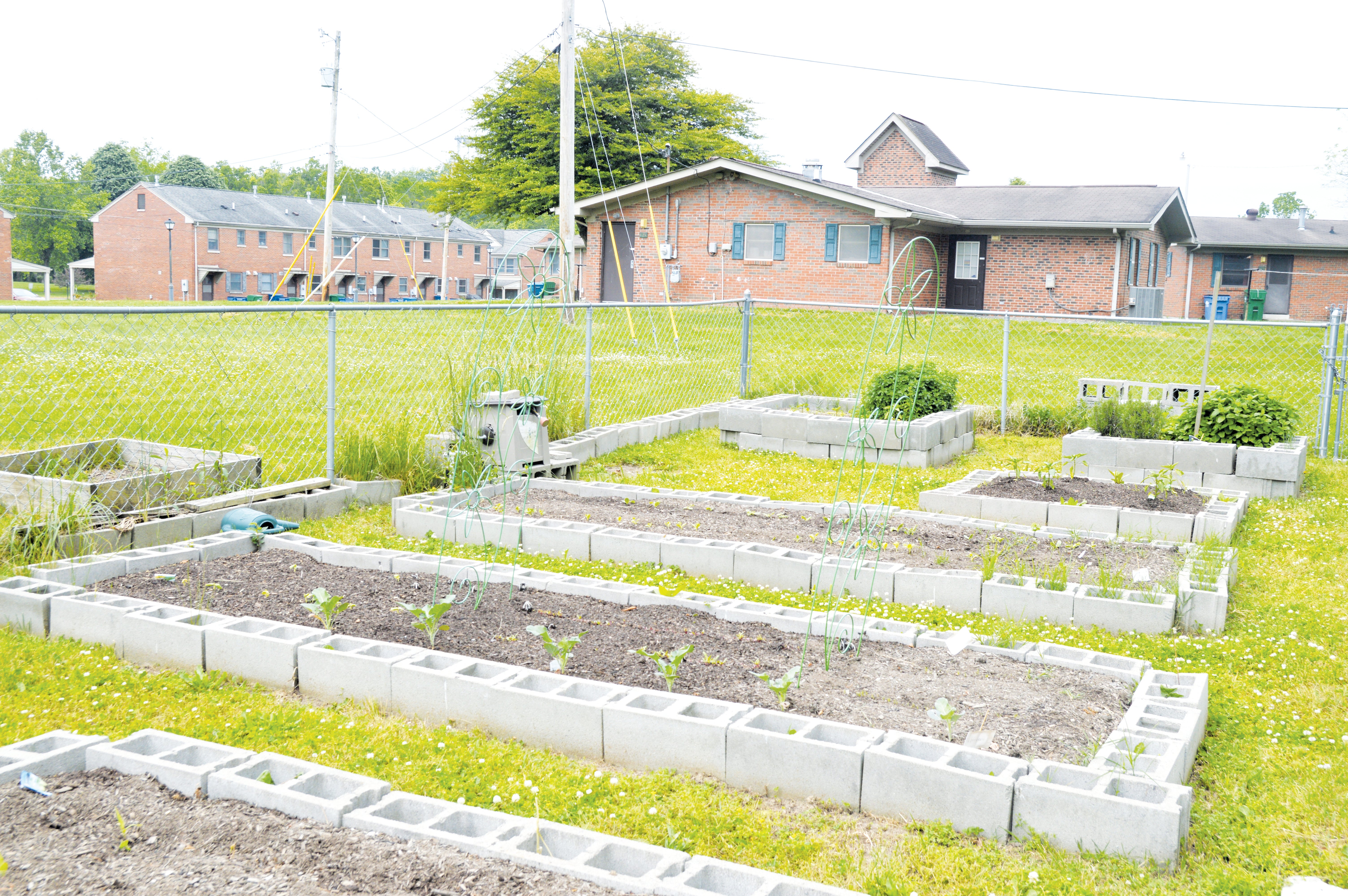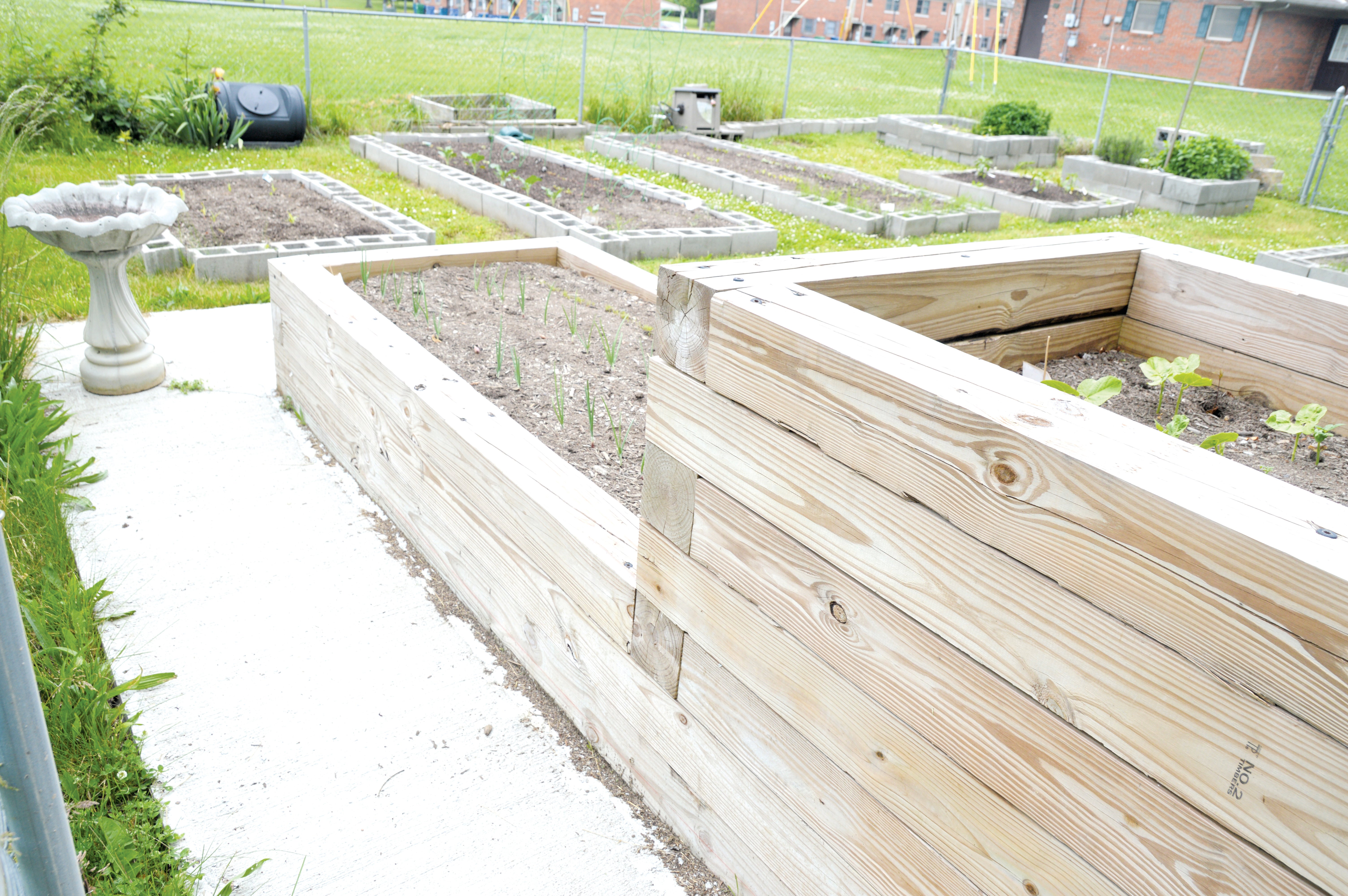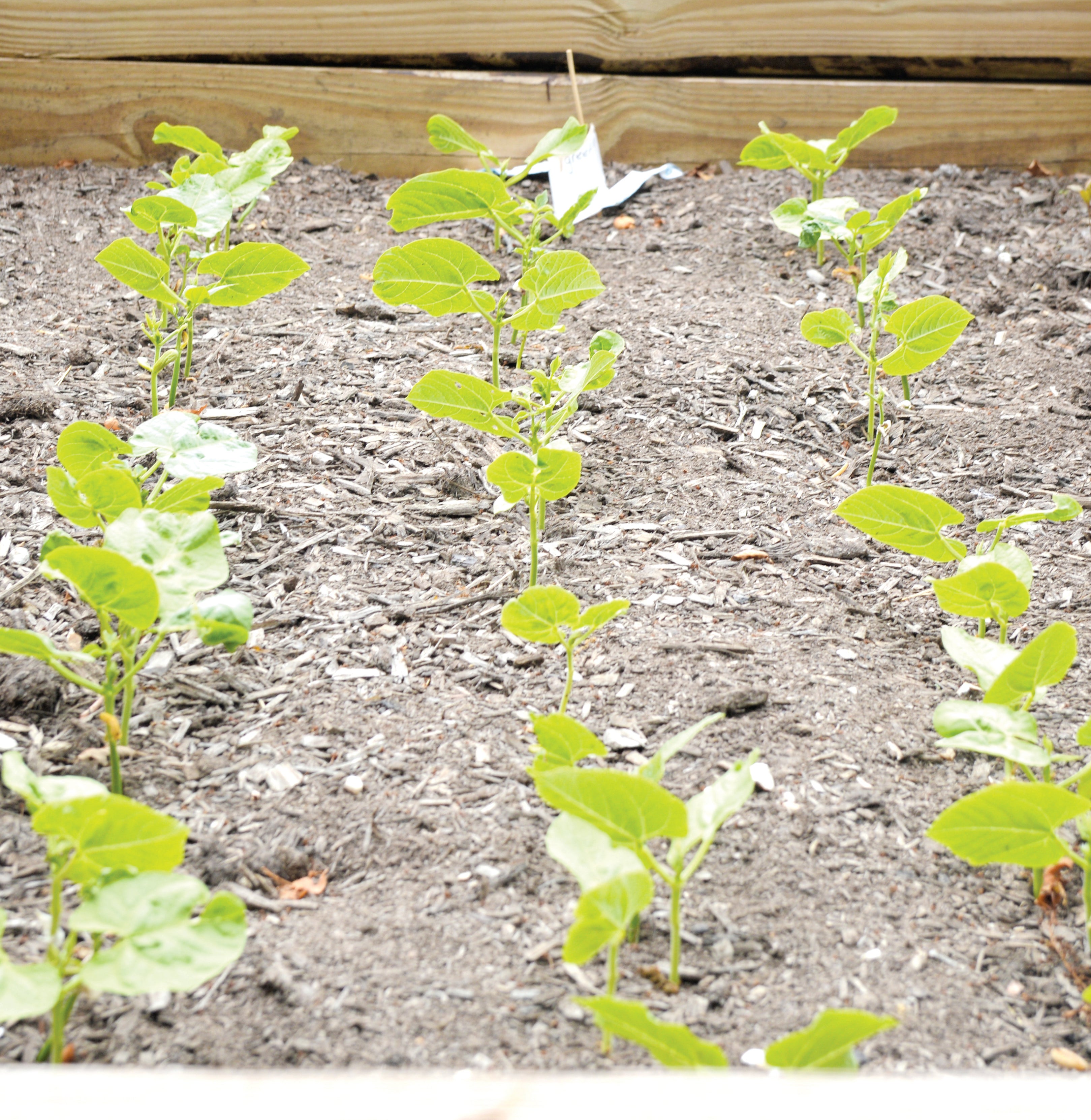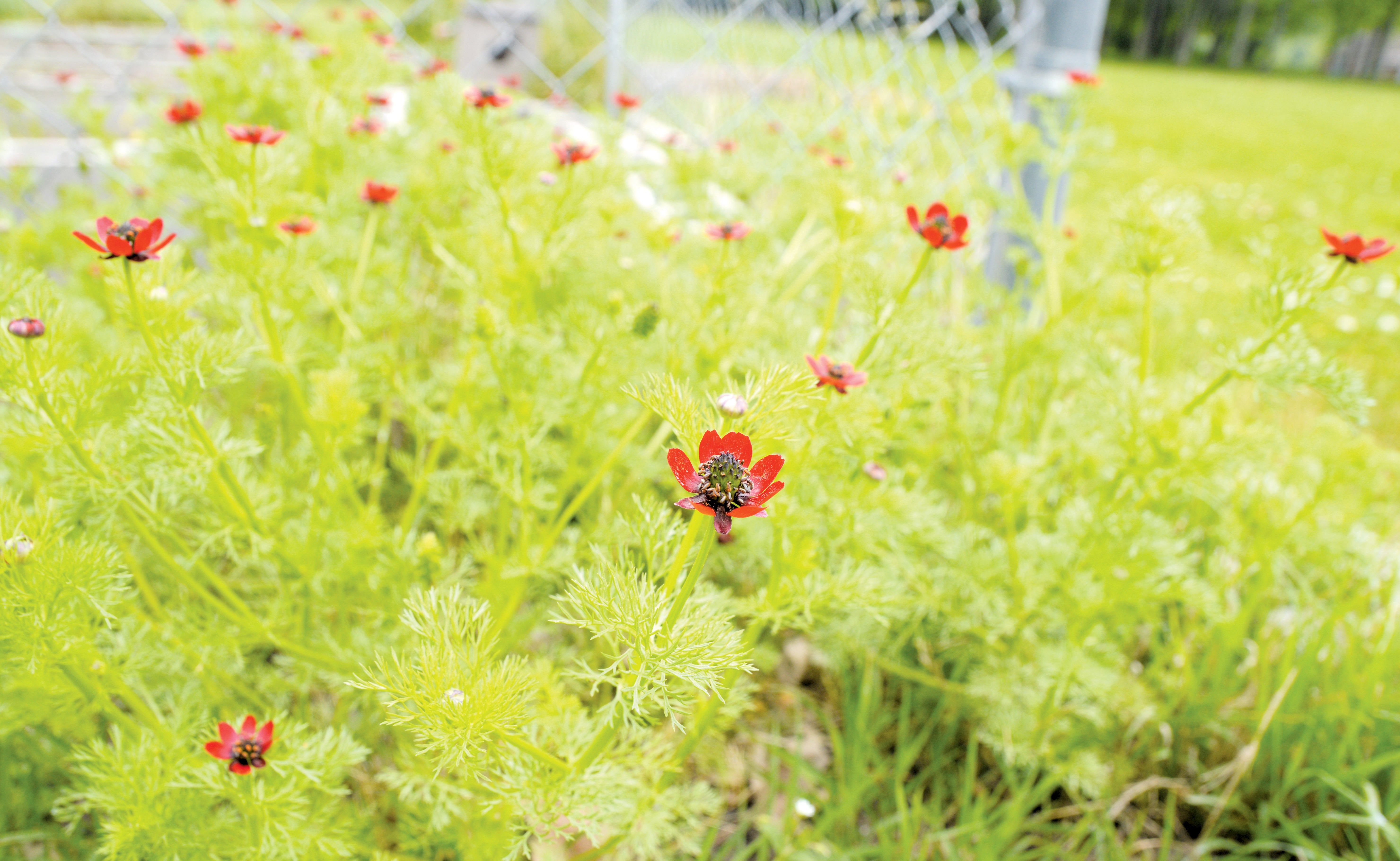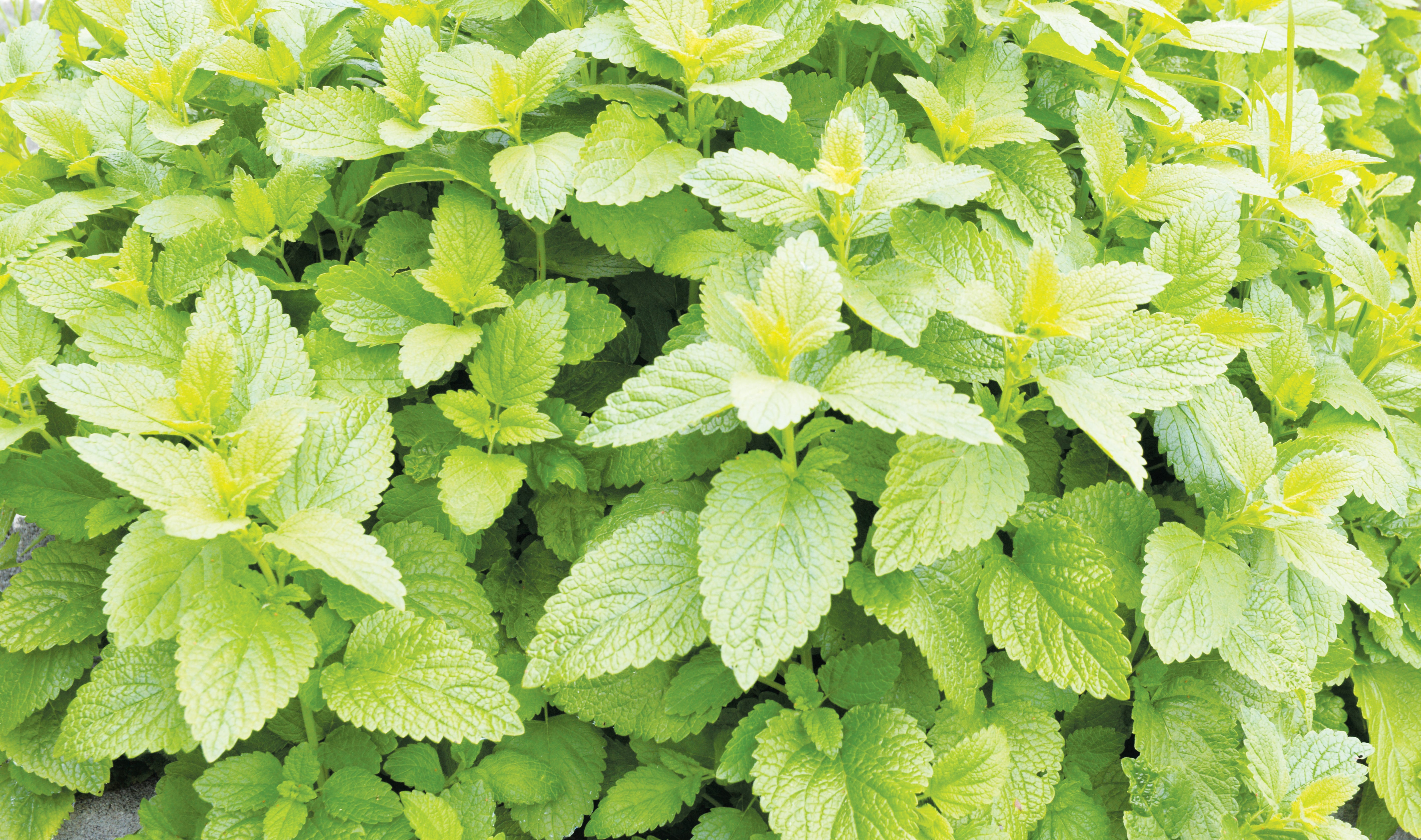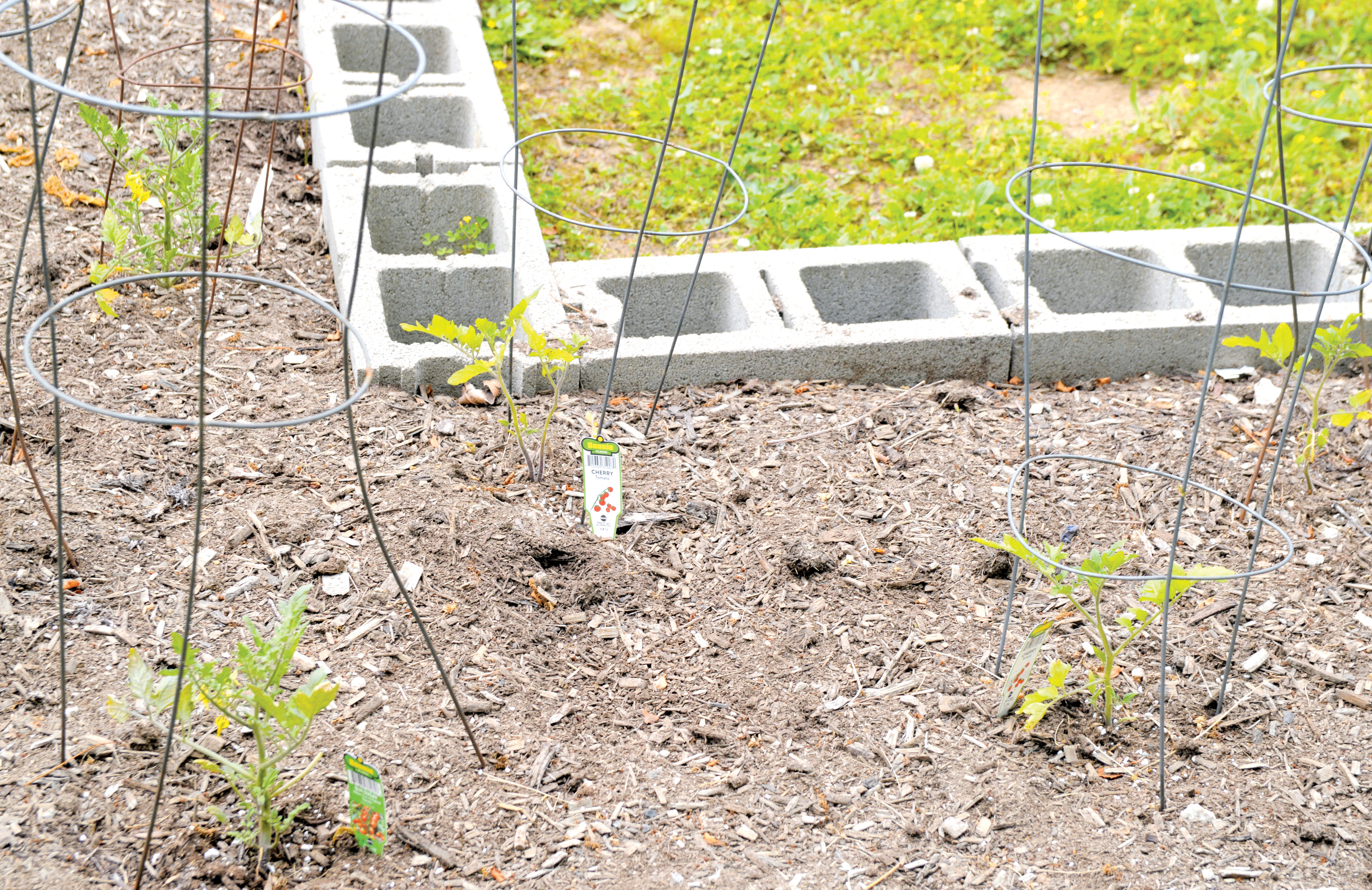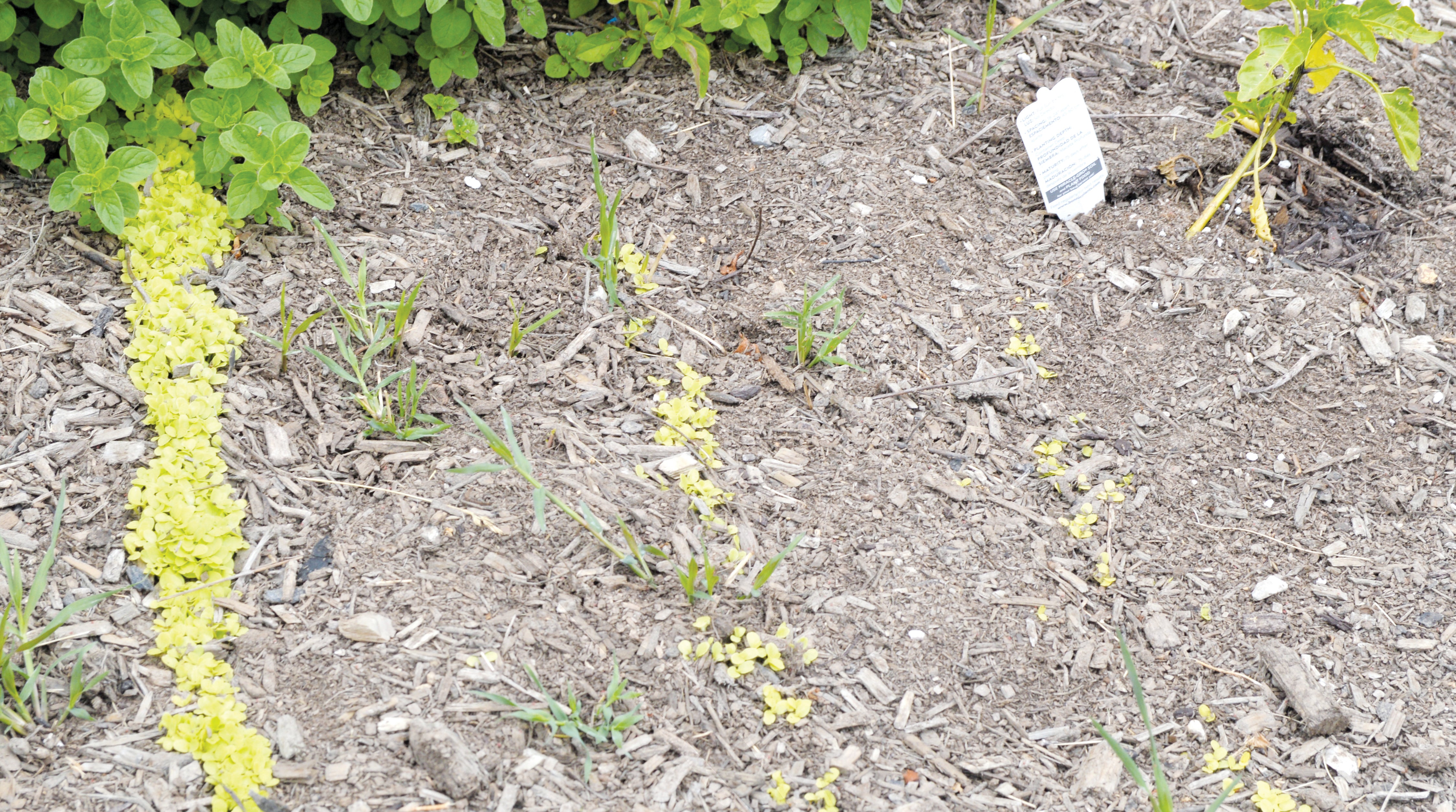Gardens for everyone: Community gardens help with produce accessibility, plant education
Published 1:54 pm Monday, May 24, 2021
With grocery stores in town being on the bypass and lacking nearby sidewalks, no grocery store located downtown and limited public transportation, the issue facing those who struggle to gain access to fresh produce like fruits and vegetables in Danville often involves the capability to get to it, said James Ross, president of Community Garden Planters, a nonprofit organization through United Way.
“There’s people struggling with not having enough food,” he said. “It’s not because they can’t get it. It’s because they can’t get to it.”
- Red flowers have bloomed outside the fence surrounding Bate-Wood Homes’ community garden. – Photo by Olivia Mohr
- A mint plant flourishes and bushes out at the Bate-Wood community garden. Beside it, not pictured, is lavender that hasn’t yet bloomed. – Photo by Olivia Mohr
Community Garden Planters seeks to bring fresh produce to everyone through community gardens, as well as foster education about how to grow one’s own food. Ross also is involved with the Garden Club of Danville and works in Constitution Square, where he takes care of plants, weed-eats and plants flowers. He has some of the same responsibilities at the McDowell House Museum and also hosts a radio show called “Gardening with James.”
Prior to Community Garden Planters, Ross was part of the Quesada Gardens Initiative in San Francisco, where he lived previously. This organization also focuses on community gardens. He then returned to Danville, where he was born and raised, and “planted” himself there.
Ross has been instrumental in establishing and maintaining some of Danville’s community gardens, which are free for anyone and everyone to use. He said the community gardens in town don’t really have rules, but the expectation is if you take something from it, you put something back into it, like a plant or time tending the garden.
“So there’s a lot of good reasons why community gardens work because it’s accessible to any and everybody,” he said. “You don’t have to have a special education, or nothing like that. If you don’t know how to plant something, when you’re there, someone will teach you. If you don’t know the answers, there’s always answers somewhere. We just try to make sure the people who have the least have the most knowledge.”
One thing Ross and others who volunteer their time to the gardens teach is that if you plant vegetables in a garden, you need to have pollinated plants around too, like flowers or flowering herbs, so bees can congregate and pollinate.
“We like a colorful garden that gives the bees the opportunity to kind of go wherever they want to and help out whatever vegetable it is,” he said.
Community gardens through Community Garden Planters are at First Christian Church (Community Garden Planters helped build the one at the church, and the church maintains it) and one is behind the community center at Bate-Wood Homes, which is public housing through the Housing Authority. There are also community gardens at Centre College and Boyle County Detention Center.
Community Garden Planters gets help in the Bate-Wood garden from Kentucky School for the Deaf, United Way, Blue Grass Community Action and other groups. These groups help maintain the garden and also provide donations, like to pay for cement to be poured around a raised bed at the Bate-Wood garden.
The raised bed and concrete are to help the garden be more wheelchair-accessible, Ross said, and he hopes later on that more concrete can be poured to not only surround the bed but also lead into and through the garden fence, to the raised bed. For now, the fence is surrounded by grass, so for someone in a wheelchair to get to the garden, they often need to be escorted there, he said.
And at this point in the year, people and volunteer groups have made huge strides in the Bate-Wood garden, Ross said. When he was last there a month ago, there wasn’t anything planted, but with his recent visit in the past week, plants are everywhere, ready to grow in the garden — cantaloupe, bell peppers, herbs, flowers, tomatoes, green beans and others.
- Fenced-in tomato plants grow in the Bate-Wood Homes community garden. – Photo by Olivia Mohr
- Lettuce begins to sprout from seed. In the left corner is a mint plant, and in the right corner are bell pepper plants. Ross said growing plants from seed, such as this lettuce, is a lesson in patience. – Photo by Olivia Mohr
The Bate-Wood garden fence is kept locked since there’s a water system installed in it, and keeping it locked is a way to make sure no one keeps the water running. Someone is often there to let people in though, Ross said, and Bate-Wood Homes has been “good” about not charging people for using the water for the garden. During the COVID-19 pandemic, fewer people have been in the gardens at a time and people have needed to schedule times, he said.
The garden at the church is also kept locked because the church uses it as an area to provide lunches and other services to people in addition to the garden, Ross said.
One thing Ross hopes for is, now that the city of Danville has purchased the Jennie Rogers building, the city will put a community garden there. He said City Commissioner Jennie Hollon has spoken with him about that possibility.
“I’ve had a couple of people talk to me about that, and I love the idea because again, that’s right in the open, houses on both sides, up and down the street, where people can go in and they can get vegetables accessible to any and everybody,” he said.
One idea he has is for the garden to go on the old baseball field and call it a “baseball garden.” With that, a flower bed could be located on the pitcher’s mound, and vegetable and fruit plants could be placed at the different bases and fields.
It’s just a matter of what the building will be used for and what the city comes up with, Ross said.
For community gardens to be centrally located in town and in various areas of town is key, he said, especially since Danville’s grocery stores are all essentially on one side of town. Also, if someone doesn’t have a car, long bus rides to grocery stores can mean a long time for perishable food to be left sitting, and there’s limited public transportation, Ross said.
As for downtown, there are gas stations and convenience stores, but not places with fresh produce, and there are high prices.
“If you go in with a food stamp card, you’re going to run out of money in a hurry,” he said.
One helpful resource for people who need food assistance has been the Boyle County Farmers Market, where they can use SNAP and other programs. And the farmer’s market is downtown and has good walk-ability.
“That’s a big supplement there,” Ross said. “I just wish they could get a building, a farmers market building here. That would really be great.”
A building or high tunnels would, for instance, allow the market to continue into the winter, he said.


